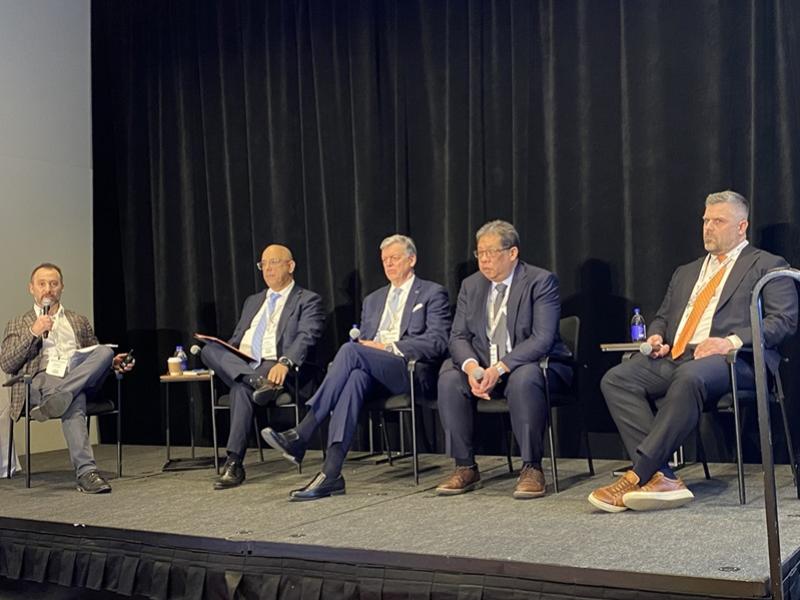The property tax assessment cycle in Ontario has doubled in length; 2024 marks the eighth year of what was originally a four-year cycle. Much has been made of the impact of the reassessment delay on the increased complexity of the property tax assessment appeal system.
While it might be convenient to attribute these complexities solely to the reassessment delay, is it appropriate? Are there other factors to consider?
The following discussion will review several significant changes which, since the reassessment delay in 2020, increased the complexity of Ontario’s property appeal tax system.
Included will be a consideration of whether these changes are best attributed to the reassessment delay or the result of other recent events.
This analysis is significant: if it is attributable to the reassessment delay, then perhaps after a reassessment we will experience a return to the relative informality of the assessment appeal system prior to the delay.
If not, taxpayers should be adopting new solutions if they hope to succeed in today’s complex property tax assessment appeal environment.
So, what are the most significant changes to the appeal system? This list would likely include:
- Incompatibility of the current system with the Assessment Act;
- Dramatically increased number of municipality initiated appeals;
- Bifurcation of the roles of advocates and experts in appeal proceedings;
- Proliferation of interim proceedings in assessment appeals.
The Assessment Act
The Assessment Act implemented an ad valorem property tax system in which property taxes are based on regular reassessments, ensuring market-reflective property assessment values. The Ontario government delayed the reassessment but did not otherwise change the act.
The primary function of the Municipal Property Assessment Corporation has vanished, albeit temporarily, and taxpayers’ rights have been curtailed.
The product of the delay is a property taxation system disconnected from today’s market realities.
Moreover, the property tax burden is no longer fairly distributed, inequities have been exacerbated and assessments of newly built properties, like the quantification of depreciation for older properties, are unpredictable.
Many assessments are a function as much of assessors’ discretion as of quantitative market data. These developments are incompatible with the ad valorem legislative framework and resulted in more contested assessments and property taxation litigation.
Appeals initiated by municipalities
The increase in contested litigation coincides with a dramatic proliferation of municipality-initiated assessment appeals.
Based on recent records of the Ontario Assessment Review Board (ARB), municipalities are the appellants in approximately 40 per cent of active Assessment Act appeals. Accordingly, by an unprecedented margin, they are the most frequent appellant in ARB proceedings.
Significantly, they are often represented by lawyers who rely on evidence from appraisers and valuators retained by the municipality. This strategy has produced financial windfalls for some municipalities at the expense of individual taxpayers.
While the timing makes it easy to attribute the increase in municipal appeals to the reassessment delay, financial motivations and newfound recognition that the assessment system can be used as a revenue-generating tool are more likely driving this trend.
A trend likely to continue regardless of a reassessment.
Bifurcation of the roles of advocates and experts
The bifurcation of the roles of advocates and experts, a trend predating the current assessment cycle, has inexorably worked its way through the property tax assessment appeal system in Ontario.
In 2007, paralegal licensing by the Law Society of Ontario (LSO) eliminated the ability of tax agents and consultants to represent taxpayers in property tax proceedings.
This change, combined with a revamping of the Rules of Practice and Procedure of the ARB, most notably in 2017, entrenched a judicial-like process for property tax assessment appeals.
In hindsight, the long-standing bifurcation by courts of the roles of advocates and expert witnesses might have made this development inevitable. This bifurcation has contributed to an appeal process similar to a court process.
Regardless, these developments were underway well before the reassessment delay and are not attributable to this delay. Nothing suggests that a reassessment will impact the strict bifurcation of advocacy and expert witnesses in property tax assessment appeal proceedings.
Proliferation of interim proceedings
Another prime driver of the increased complexity of property tax assessment appeals is the proliferation of interim proceedings. This is illustrated by the more-than-tripling, between 2015 and 2023, of the percentage of ARB written decisions resulting from interim motions.
Most notable for this discussion are interim motions regularly initiated by either the Municipal Property Assessment Corporation or municipalities, challenging taxpayers’ annual right of appeal.
This is a regrettable development with appeals increasingly decided not on substantive facts but on technical legal disputes initiated by government actors in the property tax system.
While interim motions are not new, reliance on them has dramatically increased during the reassessment delay.
With the resumption of regular reassessments, a reduction in the volume of some types of interim proceedings, such as those challenging the annual right of appeal, can be anticipated although is no way guaranteed.
New challenges demand new solutions
A review of recent developments in the property tax assessment appeal process in Ontario indicates the increased complexity of the appeal process is primarily the function of events unrelated to the reassessment delay.
Whether attributable in part to the underlying financial challenges facing municipalities, the regulation of tax “agents” by the LSO, or even systemic changes to administrative tribunals, a return to the property tax appeal system which existed 10 or even five years ago, is unlikely.
There are many compelling reasons why an immediate reassessment is necessary. Unfortunately, a reassessment is unlikely to meaningfully contribute to simplifying the property tax assessment appeal process in Ontario.
Something very similar to the current process will likely persist after a reassessment. As the system has changed, new property tax service delivery models are required.
Taxpayers who acknowledge the new complexities and leverage practices and procedures optimized to navigate them will capitalize on the opportunities to minimize property taxes inherent in the current property tax system.










